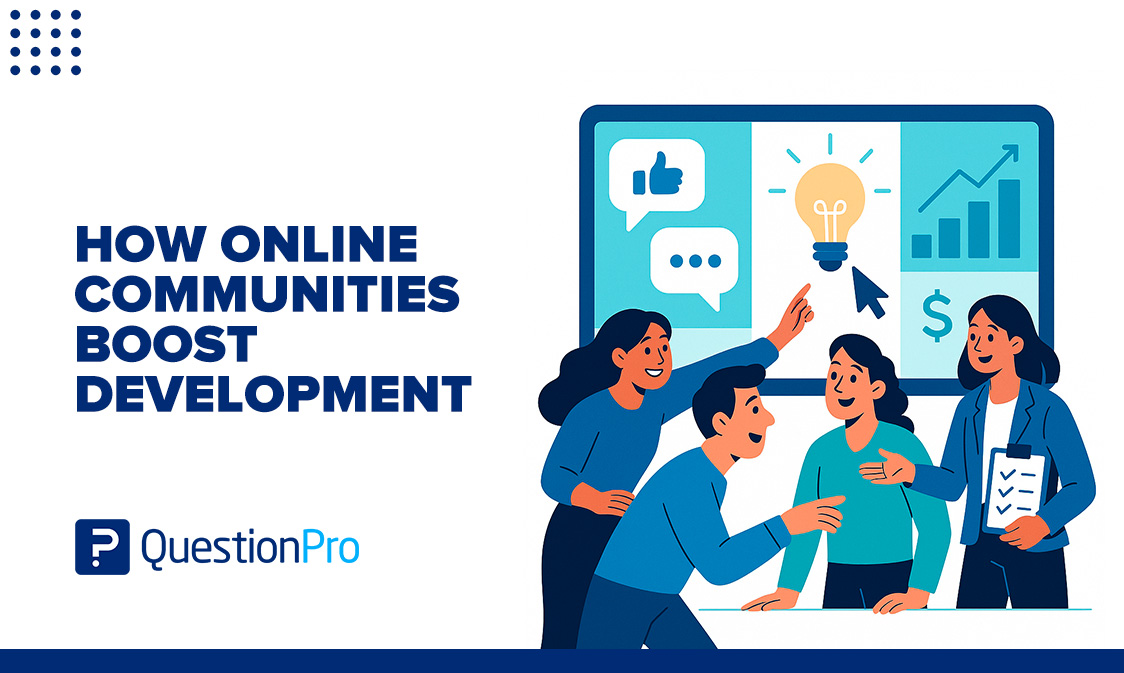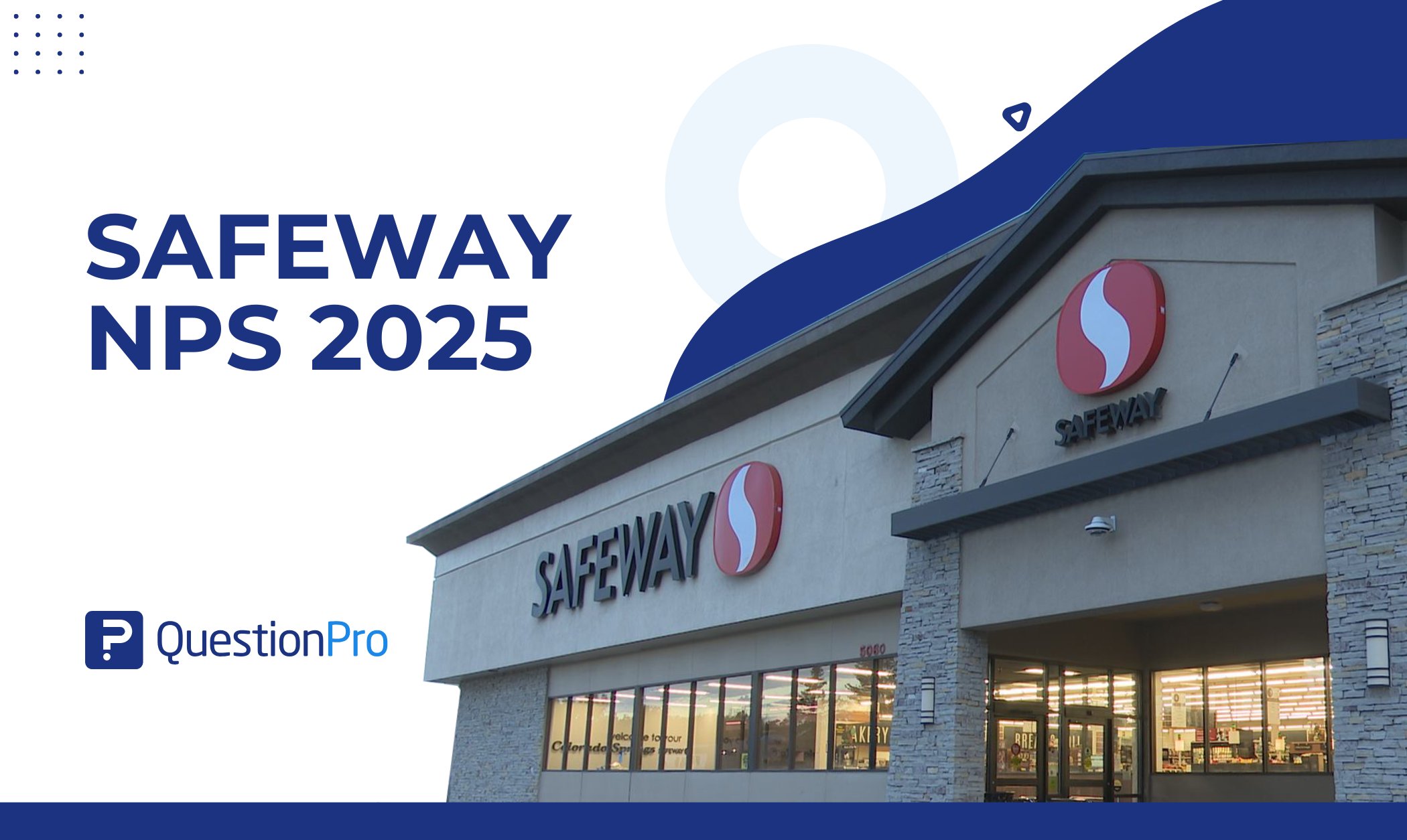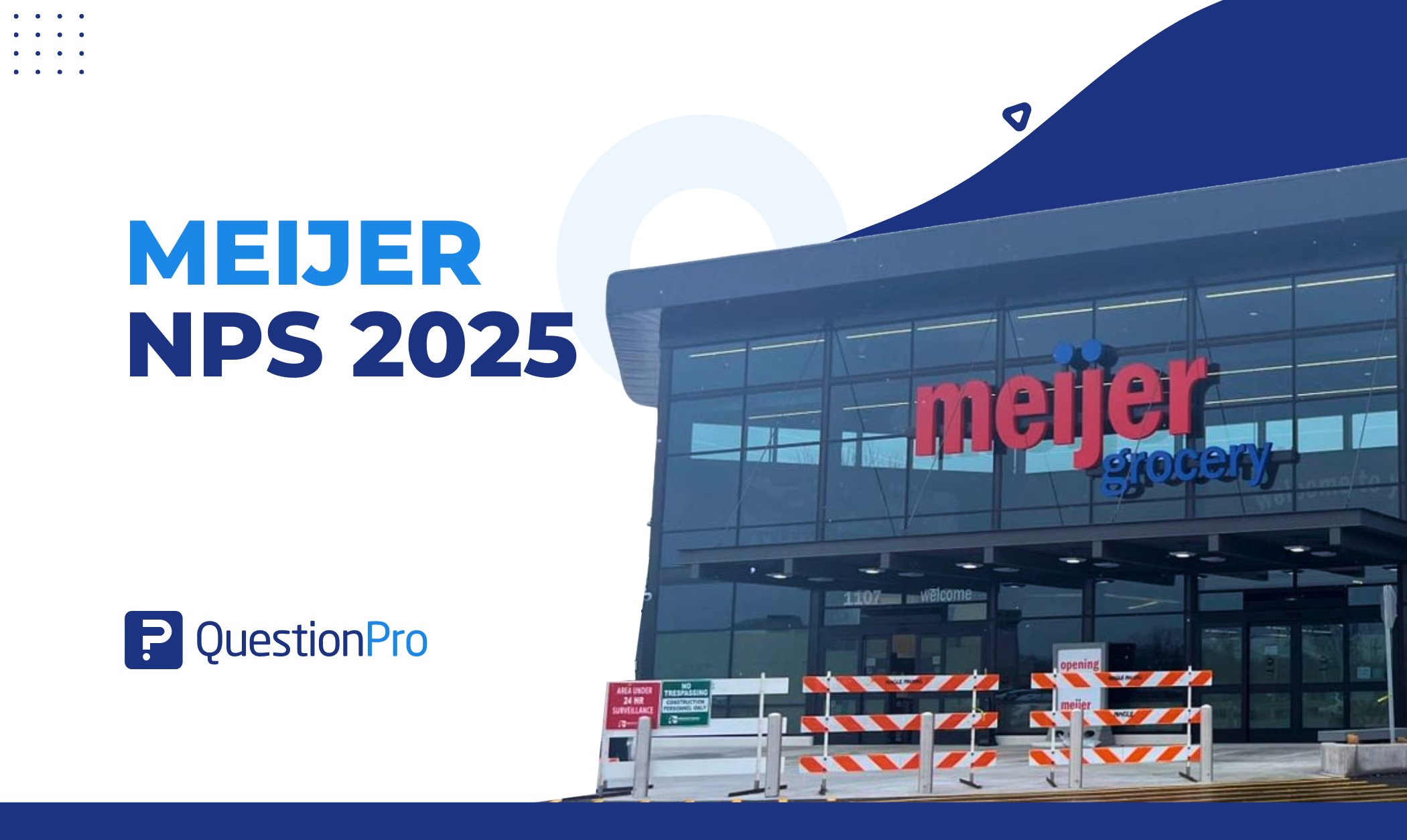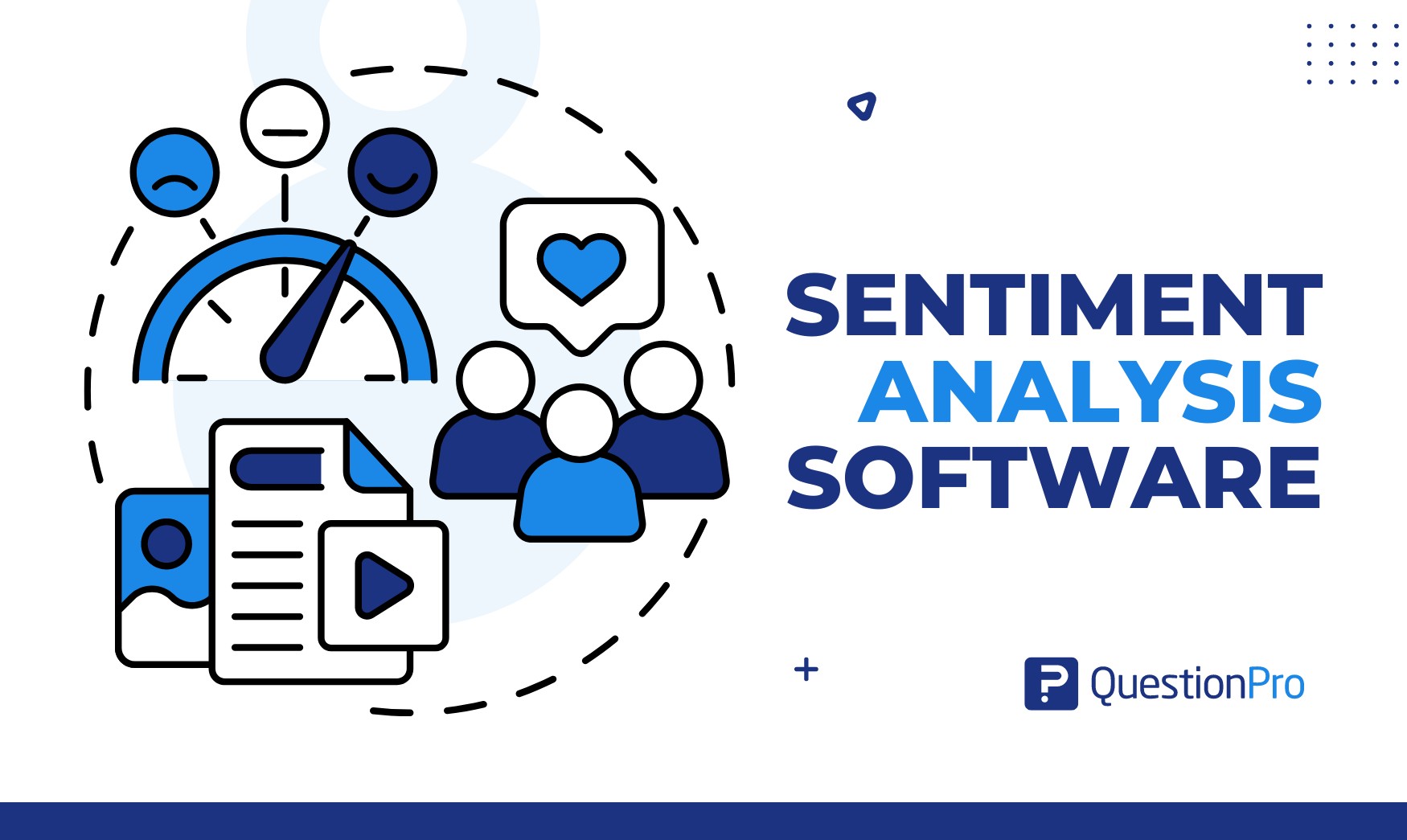
Understanding how customers feel about your products or services is crucial for business success. Sentiment analysis software helps you analyze customer feedback from various sources, such as social media, surveys, and reviews.
Most sentiment analysis tools offer a range of features and pricing plans to suit different business needs and budgets. By incorporating sentiment analysis into your business strategy, you can gain valuable insights into customer emotions, identify areas for improvement, and ultimately enhance customer experiences.
In this blog, we will explore the top 15 sentiment analysis software solutions that empower businesses to understand and leverage customer emotions effectively.
What is Sentiment Analysis?
Sentiment analysis, also known as opinion mining, is a natural language processing (NLP) technique for determining a text’s sentiment or emotional tone.
It involves analyzing a text document, such as social media posts, customer reviews, news articles, or any other form of textual data, to identify and extract subjective information regarding the writer’s attitude, opinion, or emotions towards a particular topic, product, service, event, or entity.
The primary goal of sentiment analysis is to categorize the sentiment expressed in the text into predefined categories such as positive, negative, and neutral. However, sentiment analysis can also involve more approaches, such as identifying specific emotions like joy, anger, and sadness or analyzing the intensity of sentiment.
Sentiment Analysis is a versatile topic. QuestionPro recently published a blog about this topic. Explore to learn more!
What is Sentiment Analysis Software?
Sentiment analysis software refers to computer programs or tools designed to analyze and interpret the sentiment expressed in textual data.
These software solutions leverage natural language processing (NLP) and machine learning algorithms to automatically classify the sentiment of text into predefined categories. Some sentiment analysis software can also identify specific emotions or sentiments beyond basic polarity analysis.
These software solutions cater to different industries and use cases, providing businesses with valuable insights into customer emotions, market trends, brand reputation, and more.
Why is Sentiment Analysis Software Important for Your Business?
A sentiment analysis tool is essential for businesses because it helps them understand customer emotions, identify opportunities for improvement, and enhance customer experience. Here, we explore why sentiment analysis tools are important for businesses of all sizes and industries.
Understanding Customer Sentiment
By analyzing customer feedback, reviews, and social media mentions, sentiment analysis tools help you understand how customers feel about your products, services, and brand. This insight allows you to identify areas for improvement, address customer concerns, and enhance overall customer satisfaction.
Reputation Management
Sentiment analysis software enables you to monitor online conversations and news articles related to your brand. You can protect your reputation and mitigate potential PR crises by identifying and addressing negative sentiment in real-time.
Market Research and Competitor Analysis
Sentiment analysis provides valuable insights into market trends, consumer preferences, and competitor strategies. You can identify emerging trends, market opportunities, and competitive threats by analyzing sentiment across different demographics and geographical regions.
Product Development and Innovation
Sentiment analysis helps you gather feedback on existing products and services and identify unmet customer needs and preferences. This information can guide your product development efforts, prioritize feature enhancements, and drive innovation.
Marketing and Advertising
Sentiment analysis informs your marketing and advertising strategies by identifying the most effective messaging, channels, and campaigns. By understanding the sentiment of your target audiences, you can create more relevant and engaging content, optimize ad spend, and improve campaign performance.
Customer Service Optimization
Sentiment analysis tools can analyze customer support interactions, such as emails, chats, and call transcripts, to understand customer satisfaction and identify recurring issues. This insight allows you to optimize your customer service processes, train support agents, and proactively address customer concerns.
Brand Monitoring and Crisis Management
Sentiment analysis software lets you monitor mentions of your brand, products, and key stakeholders across various online platforms. By detecting signs of dissatisfaction or negative sentiment early on, you can take proactive measures to address issues and prevent potential crises.
Data-Driven Decision Making
Sentiment analysis provides actionable insights based on data-driven customer sentiment analysis and market trends. By incorporating sentiment analysis into your decision-making processes, you can make more informed strategic decisions and allocate resources effectively.
How to Choose Sentiment Analysis Software?
Choosing the right sentiment analysis software involves a few key steps to ensure it meets your needs effectively:
Define Your Requirements
Start by clarifying what you need the software to do. Are you analyzing customer feedback, monitoring social media, or conducting market research? Understanding your goals will help you choose a tool that fits your needs.
Evaluate Core Features
Check if the software can accurately classify sentiment as positive, negative, or neutral. Look for additional features like detailed sentiment levels and the ability to detect sarcasm and context. Ensure it supports multiple languages if you work in a global context.
Consider Real-Time Capabilities
If you need immediate insights, choose software that offers real-time analysis and alerts for significant changes in sentiment.
Assess Customization Options
See if the software allows you to create custom sentiment models and adjust settings to fit your specific requirements.
Check Integration and Data Handling
Ensure the software integrates well with other tools you use, such as CRM systems. It should also handle data import and export in formats that suit your needs.
Review Data Privacy and Security
Make sure the software complies with data protection regulations and includes features for anonymizing sensitive information.
Look at Usability and Support
The software should be user-friendly and come with good customer support, including resources like tutorials and help desks.
Examine Visualization and Reporting
Check if the software provides clear and interactive dashboards, as well as detailed reports, to help you interpret the data.
Compare Costs
Look at the pricing models to find something that fits your budget. Consider whether the features provided offer good value for the cost.
Test the Software
Use free trials or demos to see how the software performs with your data and assess whether it meets your expectations.
Read Reviews and Get Recommendations
Look for user reviews and ask for recommendations from peers to gain insights into the software’s effectiveness and reliability.
By following these steps, you can select sentiment analysis software that aligns with your needs, ensuring you get accurate and actionable insights from your data.
15 Sentiment Analysis Software to Know Your Customer Emotion
Sentiment analysis software helps businesses understand the emotions and opinions expressed in text data such as customer reviews, social media posts, and surveys. Here are ten best sentiment analysis tools that can help businesses understand customer emotions:
1. QuestionPro
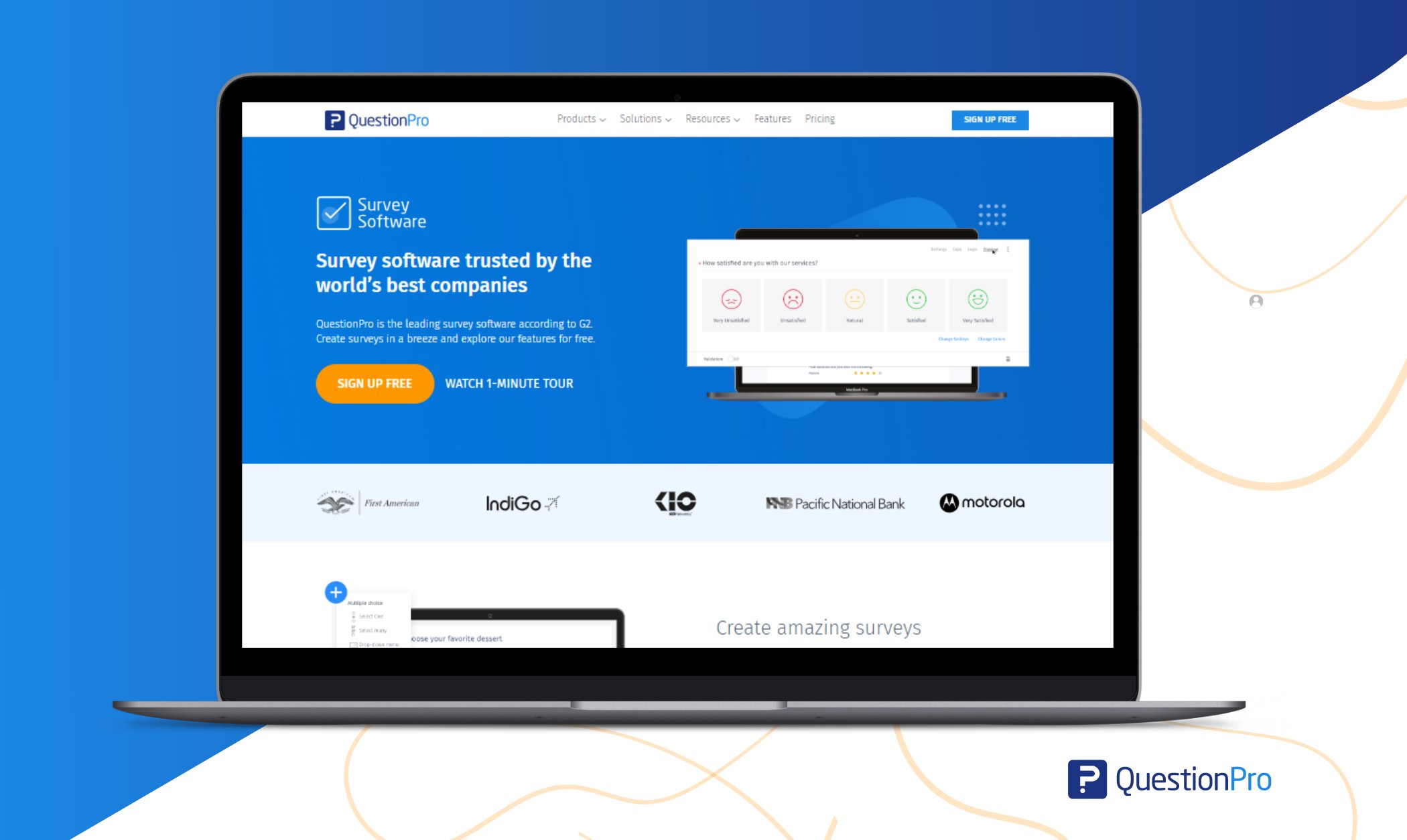
QuestionPro offers robust sentiment analysis capabilities, making it a go-to choice for businesses. Its advanced natural language processing (NLP) algorithms ensure accurate categorization of sentiments. Plus, it’s versatile enough to integrate with other platforms you might already be using.
Key Features:
- QuestionPro utilizes cutting-edge NLP technology to precisely categorize customer emotions.
- Businesses can effectively create survey and feedback form templates to meet specific objectives and target audience segments.
- QuestionPro offers real-time dashboards for tracking evolving customer emotions.
- Strongly integrate QuestionPro with CRM systems and marketing tools for streamlined data collection and analysis.
- QuestionPro supports data collection from diverse channels, including online surveys, social media, email, SMS, and website feedback forms.
Pros:
- QuestionPro offers comprehensive analytics features.
- Actionable insights derived from sentiment analysis.
- Scalable solutions were suitable for businesses of all sizes.
Cons:
- Some advanced features may require technical expertise.
Pricing:
- Offers pricing plans starting from $99 per month.
2. Brand24
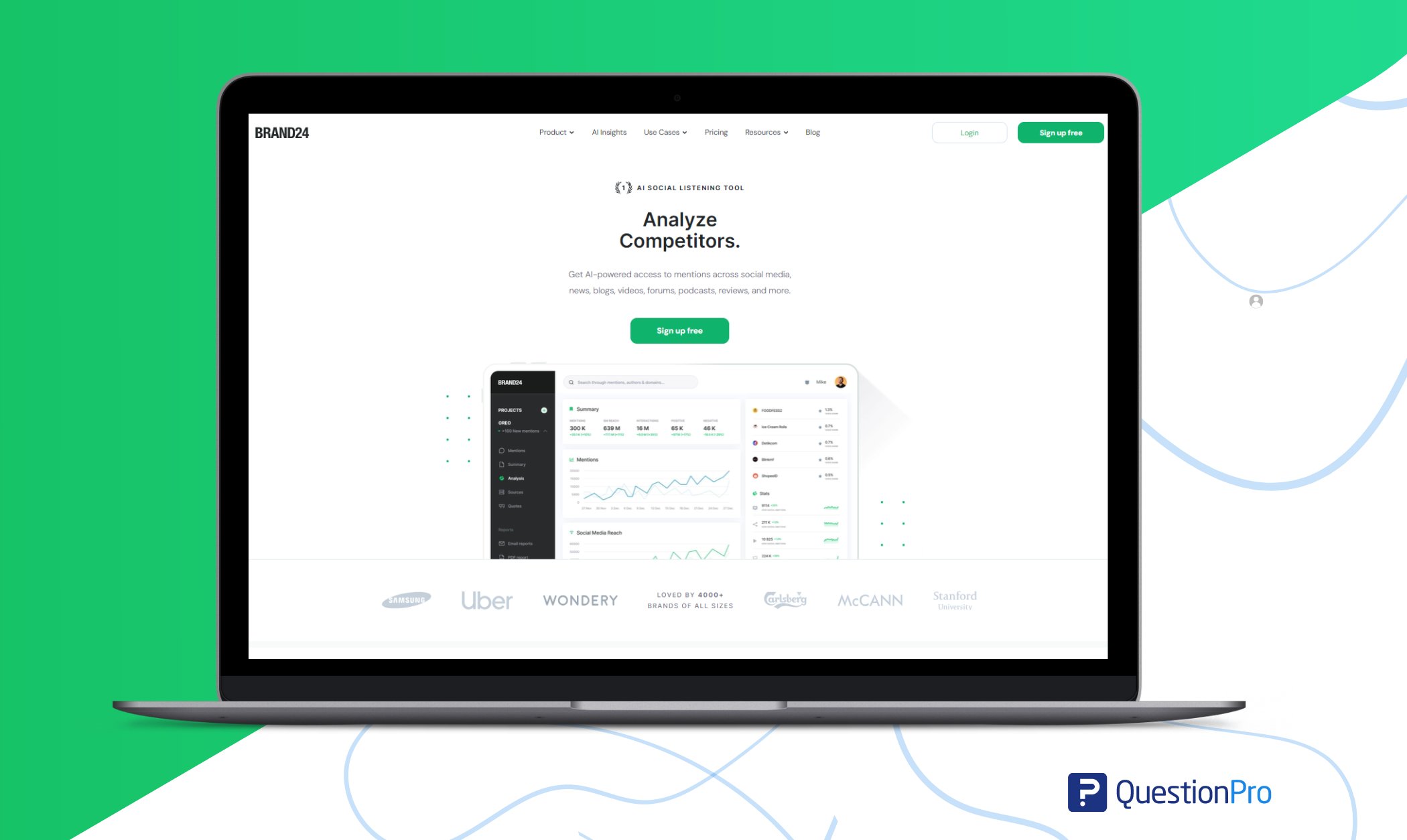
Brand24 specializes in social media monitoring and sentiment analysis. It’s great for tracking mentions of your brand, products, and even your competitors across online platforms. Its real-time alerts and competitive sentiment analysis tools make it a valuable asset for brand management.
Key Features:
- Brand24 offers robust social media monitoring capabilities, allowing businesses to track mentions of their brand, products, and competitors across various online platforms.
- Utilizes advanced sentiment analysis algorithms to accurately assess the sentiment behind brand mentions, distinguishing between positive, negative, and neutral sentiments.
- Provides real-time alerts for brand mentions, enabling businesses to stay informed and respond promptly to emerging conversations and trends.
- Offers competitive sentiment analysis tools to benchmark brand sentiment against competitors.
Pros:
- Social Media Tracking.
- Integration with third-party platforms enhances functionality.
- Dedicated customer support for assistance and guidance.
Cons:
- Limited integration options may restrict data sharing.
- Higher pricing for advanced features may not suit all budgets.
Pricing: Pricing is available upon request.
3. Qualtrics
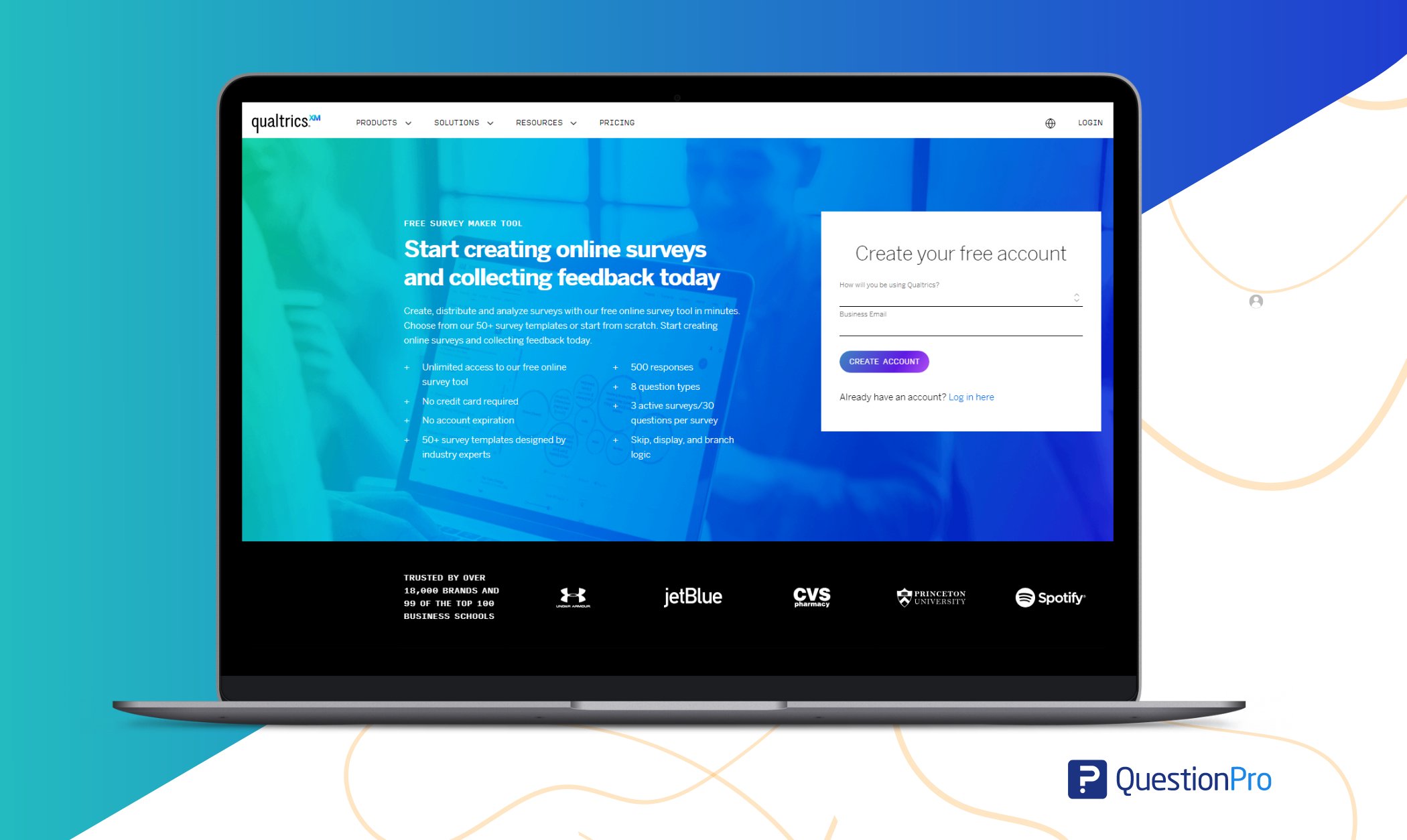
Qualtrics is another top contender known for its experience management platform. With sophisticated sentiment analysis features, it helps businesses collect and act on customer feedback across various touchpoints. Though it might be on the pricier side, its user-friendly interface and actionable insights make it worth considering.
Key Features:
- Utilizes sophisticated NLP technology to accurately categorize customer sentiments as positive, negative, or neutral.
- Offers customizable templates for surveys and feedback forms.
- Provides real-time dashboards for tracking customer emotions as they evolve, facilitating timely decision-making and adjustments.
- Strongly integrates with CRM systems and marketing tools, streamlining data collection and analysis processes.
- It supports data collection from various channels, including online surveys, social media, email, SMS, and website feedback forms.
Pros:
- Has nice email visualizations.
- User-friendly interface for easy navigation.
- Actionable insights based on feedback.
Cons:
- Higher pricing compared to some competitors.
- Complex interfaces may require training for beginners.
- Limited customization options in basic plans.
Pricing:
- Pricing varies based on features and usage. Contact Qualtrics for specific pricing details.
4. MonkeyLearn
MonkeyLearn is a text analysis platform offering powerful sentiment analysis features. It’s user-friendly and allows businesses to examine customer feedback, social media posts, and more. The best part? It offers customizable models, so you can create it to your specific needs.
Key Features:
- MonkeyLearn offers a suite of easy-to-use text analysis tools for sentiment analysis, topic categorization, and entity recognition.
- Utilizes advanced sentiment analysis algorithms to classify text accurately.
- Allows users to create and customize their own sentiment analysis models to suit specific business needs and industry requirements.
- Integrates with various business applications and platforms, including CRM systems and helpdesk software.
- Offers scalable pricing options to accommodate businesses of all sizes, from startups to enterprise-level organizations.
Pros:
- Comprehensive analytics and reporting tools.
- Actionable insights derived from sentiment analysis.
- Dedicated customer support for assistance and guidance.
Cons:
- Some advanced features may require technical expertise for implementation.
- Limited integration options may restrict functionality.
- Some users may prefer more customization options.
Pricing:
- Pricing varies based on features and usage. Contact MonkeyLearn for specific pricing details.
5. Lexalytics
Lexalytics is renowned for its comprehensive text analytics tools, including sentiment analysis. Thanks to its support for multiple languages, it’s particularly useful for businesses dealing with multilingual data. While it may come with a higher price tag, its reliability and accuracy make it a worthy investment.
Key Features:
- Lexalytics provides a comprehensive suite of text analytics tools, including sentiment analysis, entity extraction, and theme identification.
- Utilizes advanced sentiment analysis algorithms to accurately analyze and categorize customer sentiments.
- Offers support for multiple languages, allowing businesses to analyze customer sentiments in diverse markets and regions.
- Integrates with CRM systems and other business applications.
- Boasts high accuracy and reliability in sentiment analysis results.
Pros:
- Reliable performance and accuracy.
- Scalable solutions are suitable for businesses of all sizes.
- Customizable reporting options for actionable insights.
Cons:
- Higher pricing compared to some competitors.
- Some users may prefer more integration options.
Pricing:
- Pricing varies based on features and usage. Contact Lexalytics for specific pricing details.
6. Social Mention
Social Mention stands out for its simplicity and affordability. It’s a free social media monitoring tool with basic sentiment analysis capabilities. While it might not offer advanced features, it’s a great starting point for businesses dipping their toes into sentiment analysis.
Key Features:
- Social Mention provides real-time monitoring of brand mentions, hashtags, and keywords across various social media platforms.
- Offers basic sentiment analysis capabilities to assess the overall sentiment behind social media mentions.
- Boasts a user-friendly interface that makes it easy for businesses to navigate and interpret social media data.
- Allows users to easily share and export social media data for further analysis or reporting purposes.
- Social Mention is available for free.
Pros:
- Customizable reporting options for actionable insights.
- Integration with third-party platforms enhances functionality.
- Scalable solutions are suitable for businesses of all sizes.
Cons:
- Limited customization options may restrict advanced analysis.
- Basic sentiment analysis may lack depth for comprehensive insights.
Pricing:
- Social Mention is a free sentiment analysis tool.
7. AskNicely
AskNicely focuses on customer feedback and sentiment analysis, particularly through Net Promoter Score (NPS) surveys. It’s easy to use and offers real-time reporting, making it ideal for businesses looking to improve customer satisfaction and loyalty.
Key Features:
- AskNicely enables businesses to collect and analyze customer feedback in real-time.
- Strong integration with CRM and helpdesk systems.
- Provides actionable insights and recommendations based on customer feedback.
- Offers user-friendly feedback collection tools, making it easy for businesses to gather customer feedback through surveys and NPS assessments.
- Allows businesses to customize surveys to match their brand and specific objectives.
Pros:
- Scalable solutions are suitable for businesses of all sizes.
- Affordable pricing plans for varying budgets.
- Easy integration with third-party platforms enhances functionality.
Cons:
- Limited scalability may not suit larger enterprises.
- Higher pricing compared to some competitors.
Pricing:
- Pricing varies based on features and usage. Contact AskNicely for specific pricing details.
8. Qualaroo
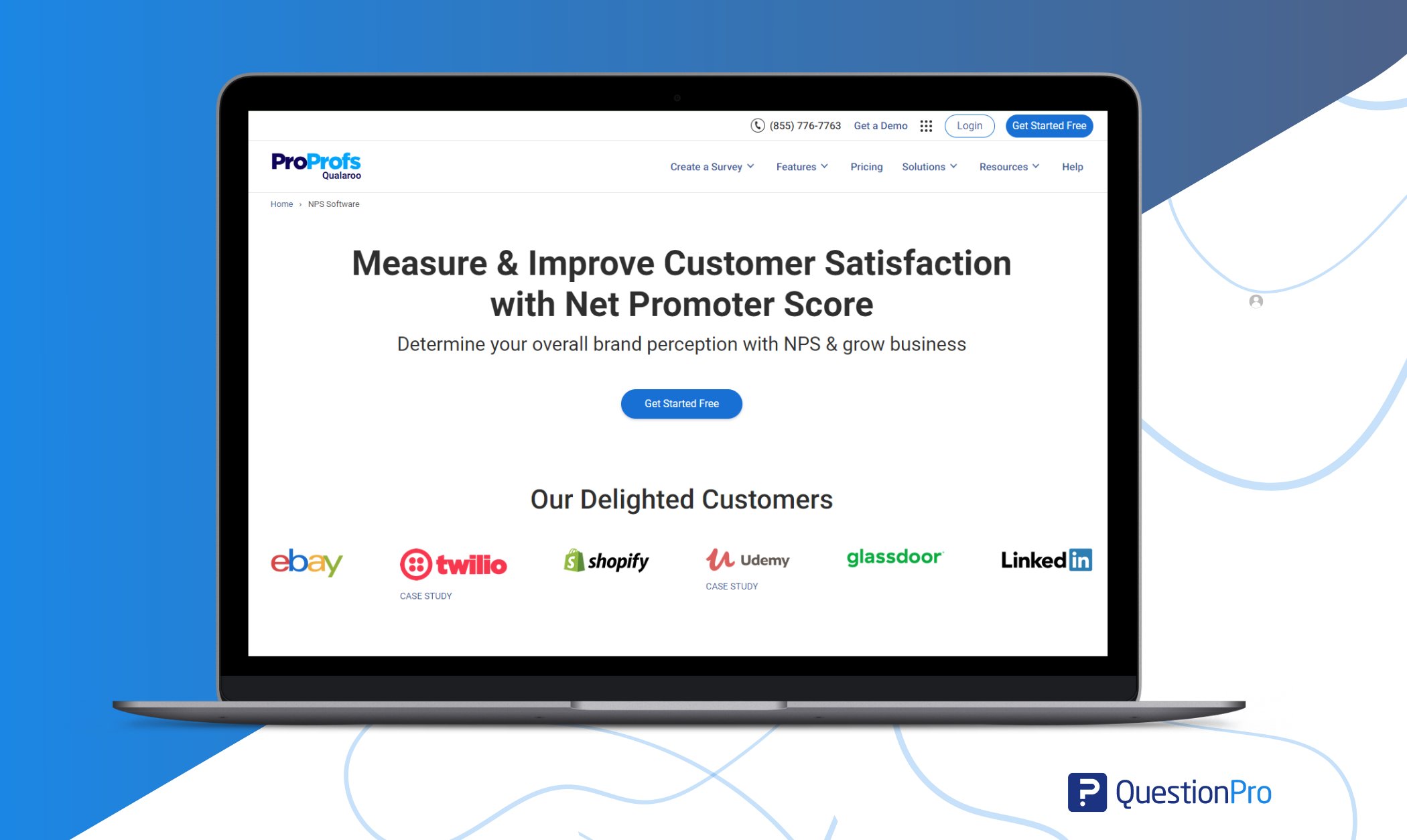
Qualaroo specializes in user feedback and sentiment analysis, offering customizable survey templates and advanced sentiment analysis algorithms. While its interface may require some training to navigate, its actionable insights make it a valuable asset for businesses.
Key Features:
- Qualaroo offers user-friendly tools for collecting feedback from website visitors.
- Utilizes advanced sentiment analysis algorithms to analyze and categorize feedback responses.
- Provides customizable survey templates that businesses can create to match their brand and specific objectives.
- Strongly integrates with CRM systems and analytics platforms.
- Delivers actionable insights and recommendations based on feedback data.
Pros:
- Customizable surveys to specific business objectives.
- Effective question engine.
- Reduce the feedback analysis time with its inbuilt AI-based analytical tool.
Cons:
- A bulk action button is needed to export reports from multiple surveys at once.
- There is no feature to embed surveys directly into the mail body.
Pricing:
- Pricing varies based on features and usage. Contact Qualaroo for specific pricing details.
9. Meltwater
Meltwater is a leading provider of excellent media intelligence solutions, catering to businesses seeking to effectively understand and leverage media mentions, sentiments, and trends. With robust tools and advanced algorithms, Meltwater empowers businesses to monitor, analyze, and derive actionable insights from media coverage across various channels.
Key Features:
- It offers robust media monitoring capabilities to track mentions of its brand, products, and competitors across various sources.
- Meltwater offers advanced sentiment analysis algorithms to analyze the sentiment and tone of media mentions.
- Provide real-time alerts for media mentions to stay informed about breaking news, emerging trends, and critical events that impact their brand reputation.
- Meltwater offers competitive analysis tools that allow businesses to benchmark their brand sentiment against competitors.
Pros:
- Robust data sources.
- Nice visual representations of mentions/conversations.
- User-friendly interface for easy navigation and usage.
Cons:
- Sales reps may not be responsive.
Pricing:
- Pricing is available upon request and may vary based on the business’s specific requirements.
10. Hootsuite
Hootsuite serves as a prominent platform for monitoring social media data and footprint, offering robust sentiment analysis capabilities. This tool enables businesses to monitor brand mentions, industry trends, and competitor activity across multiple platforms in real-time, all within a single interface.
Key Features:
- Hootsuite allows businesses to monitor brand mentions, industry trends, and competitor activity.
- Hootsuite automatically categorizes mentions as positive, negative, or neutral, providing quick insights into overall sentiment.
- Hootsuite enables users to schedule and publish content across various social media platforms.
- Hootsuite’s social listening tool capabilities allow users to monitor conversations, track keywords, and spot emerging trends to stay informed and responsive.
Pros:
- Customizable reporting options.
- Multi-profile scheduling.
- Integrates with Canva.
Cons:
- Support is slow to reply.
- The free trial requires a credit card.
Pricing:
- Pricing starts at $99 per month for the professional plan.
11. Podium
Podium is a customer interaction platform that offers sentiment analysis features to help businesses understand and manage customer feedback effectively. With its suite of tools, businesses can collect and analyze customer reviews, messages, and feedback from various channels to gain insights into customer emotions.
Key Features:
- Podium enables businesses to collect and manage customer reviews from platforms like Google, Facebook, and more.
- Utilizes sentiment analysis algorithms to categorize customer feedback as positive, negative, and neutral.
- Provides real-time alerts for new reviews and messages, allowing businesses to respond promptly.
- Enables businesses to communicate with customers across multiple channels, including SMS, webchat, and messaging apps.
- Offers customizable reporting tools to track trends, monitor sentiment, and measure customer satisfaction over time.
Pros:
- Quick access to incoming website inquiries.
- User-friendly interface for easy navigation.
- Customizable reporting tools for actionable insights.
Cons:
- Has loading problems sometimes.
Pricing:
- Pricing is available upon request and may vary based on the business’s specific needs.
12. NiceReply
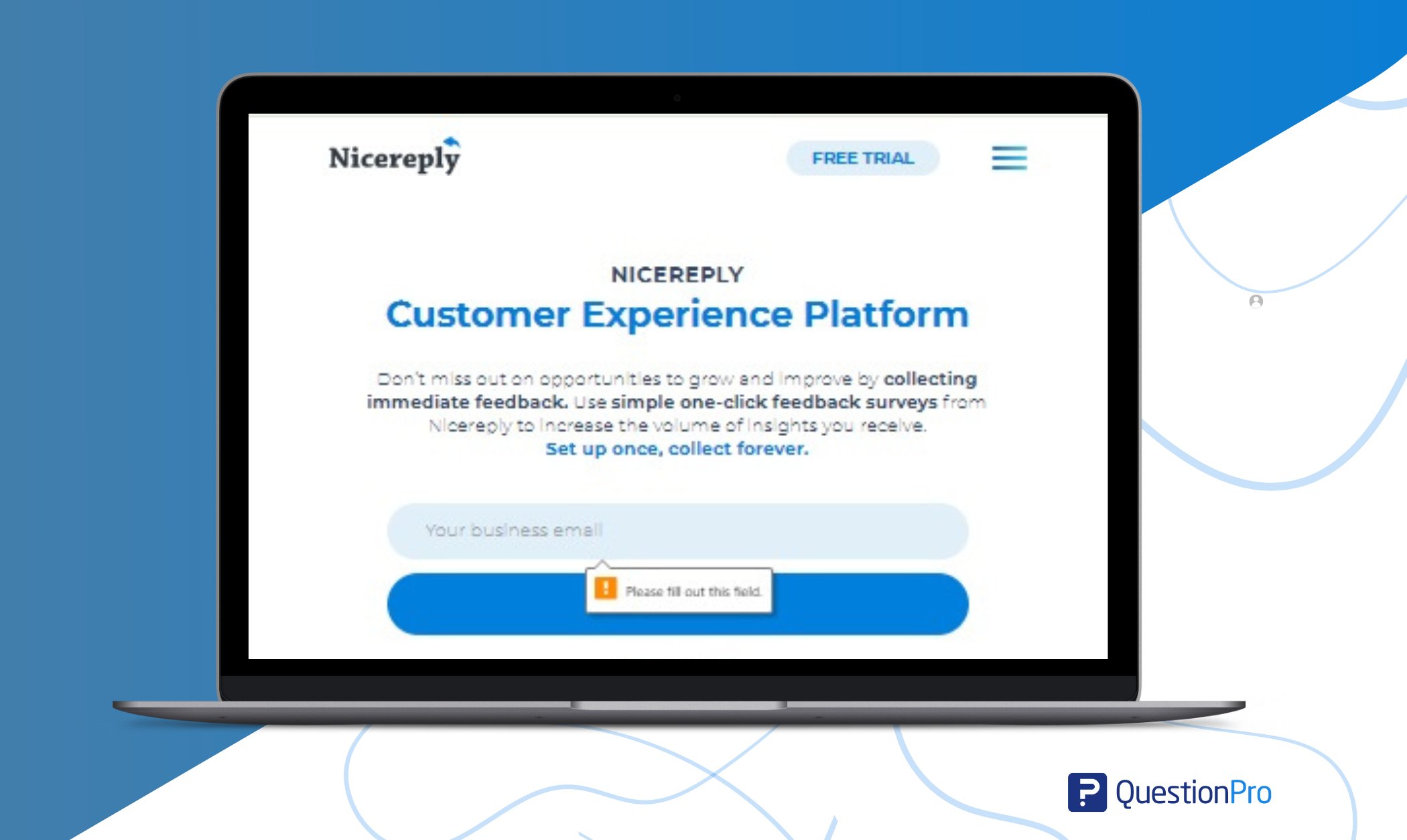
NiceReply is a customer feedback platform specializing in Net Promoter Score (NPS) surveys and sentiment analysis. It helps businesses collect, analyze, and act on customer feedback to improve customer satisfaction and loyalty.
Key Features:
- NiceReply allows businesses to create and send NPS surveys to measure customer satisfaction and loyalty.
- Utilizes sentiment analysis algorithms to categorize feedback responses as positive, negative, or neutral.
- Provides real-time dashboards and reports to track NPS scores, sentiment trends, and customer feedback.
- Offers actionable insights and recommendations based on customer feedback to drive improvements and growth.
Pros:
- Specialized in sentiment analysis.
- Integration with CRM systems for data synchronization.
- The system is very easy to use and intuitive.
Cons:
- Advanced features may require additional setup and configuration.
Pricing:
- Pricing is available upon request.
13. SentiSum
SentiSum is an AI-driven text analytics platform specializing in sentiment analysis and text classification. It helps businesses extract valuable insights from unstructured text data, enabling them to effectively understand customer emotions.
Key Features:
- This allows businesses to understand customer emotions accurately and identify areas for improvement.
- The platform offers customizable text classification models, allowing businesses to train and create models for their specific industries, domains, and use cases.
- SentiSum provides real-time insights into customer sentiment, allowing businesses to monitor sentiment trends as they evolve.
- The platform offers actionable recommendations based on sentiment analysis results.
Pros:
- Accurate sentiment analysis results.
- Strong integration with multiple data sources.
- Natural language processing (NLP) algorithms.
Cons:
- Limited documentation or support resources for complex use cases.
Pricing:
- Pricing is available upon request and may vary based on the specific requirements.
14. Awario
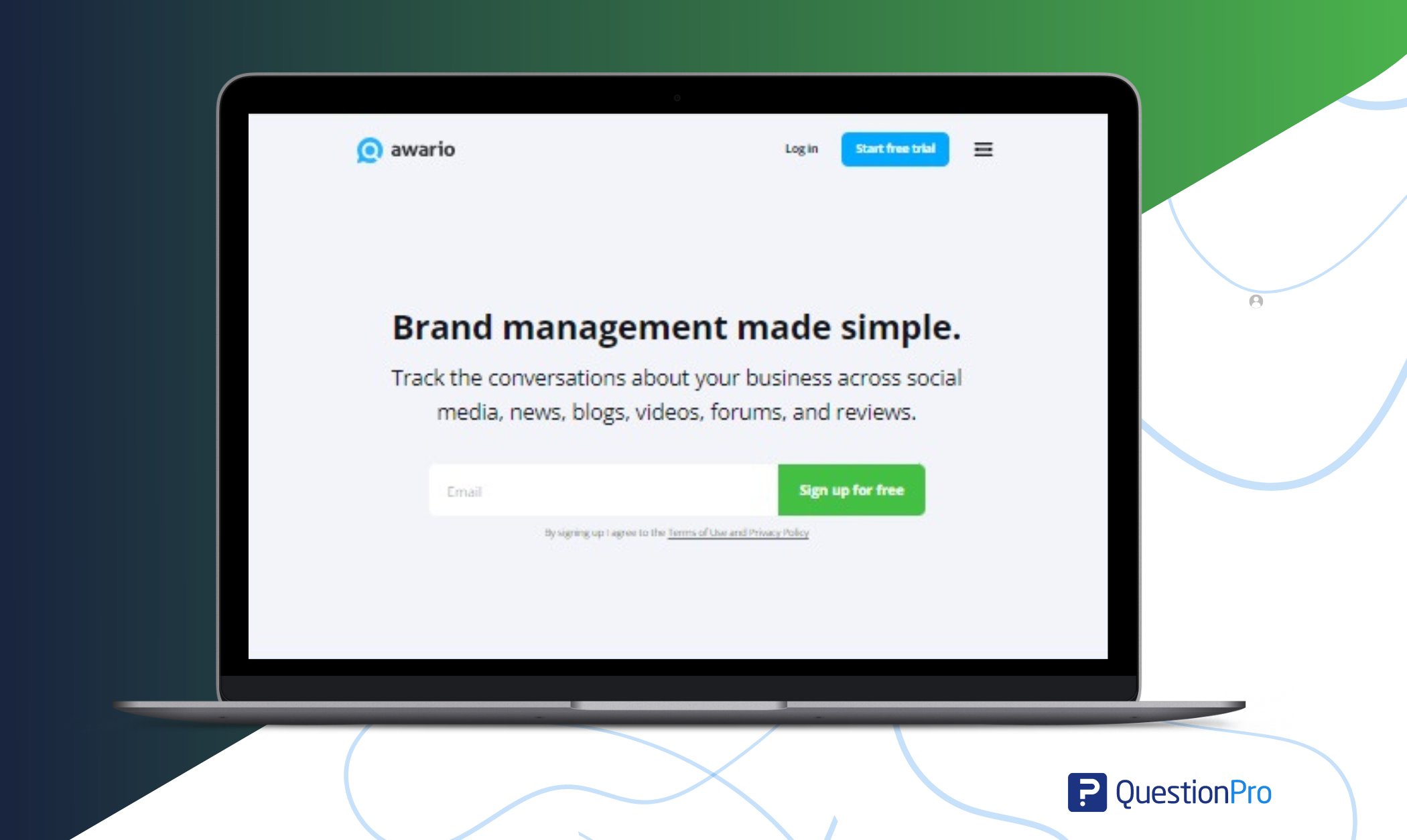
Awario is a social media monitoring and sentiment analysis tool designed to track brand mentions and monitor sentiment across online platforms. Its advanced sentiment analysis capabilities make it a great choice for businesses looking to manage their online reputation effectively.
Key Features:
- Awario offers comprehensive social media monitoring features, enabling businesses to track brand mentions, hashtags, and keywords.
- Leveraging advanced sentiment analysis algorithms, Awario accurately assesses the sentiment behind brand mentions, categorizing them as positive, negative, or neutral sentiments.
- Awario offers competitive analysis tools that enable businesses to benchmark their brand sentiment against competitors.
- Awario provides robust reporting and analytics features, allowing businesses to generate comprehensive reports on sentiment trends, brand performance, and competitor insights.
Pros:
- Real-time alerts for proactive engagement.
- Competitive analysis tools for benchmarking.
- Robust reporting and analytics features.
Cons:
- Pricing may be higher compared to some competitors.
Pricing:
- Pricing starts at $89 per month for the pro plan.
15. Medallia

Medallia rounds up our list with its comprehensive customer experience management platform, including sentiment analysis features. While pricing may be on the higher side, its robust text analytics and actionable insights make it a top choice for businesses prioritizing customer satisfaction.
Key Features:
- Medallia offers multiple channels for collecting customer feedback, including surveys, social media, online reviews, and contact center interactions.
- Medallia performs sentiment analysis on customer feedback data to categorize sentiments as positive, negative, or neutral.
- Medallia provides robust text analytics capabilities to extract actionable insights from unstructured feedback data.
- With Medallia, businesses can create action plans based on feedback insights and assign tasks to relevant teams or departments.
Pros:
- Allows clients to quickly and easily rate your business.
- Real-time monitoring and alerts for proactive engagement.
- Scalable solutions are suitable for businesses of all sizes.
Cons:
- The implementation and onboarding process may require time and resources.
Pricing:
- Pricing is available upon request.
Discover how QuestionPro’s Customer Insight Platform can revolutionize your understanding of customer feedback and enhance your business strategies!
Why Choose QuestionPro For Your Sentiment Analysis?
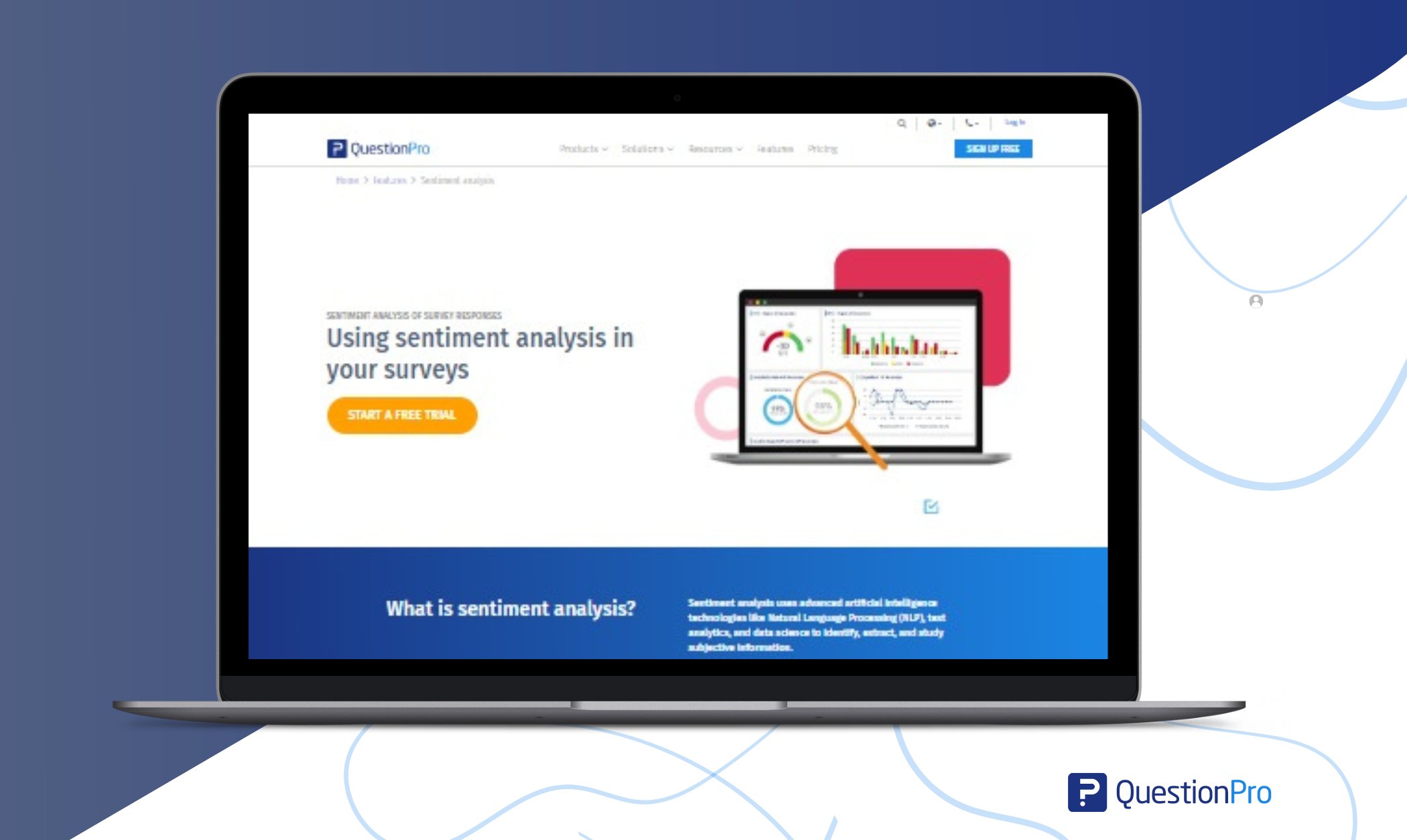
When it comes to sentiment analysis software, businesses need a solution that not only accurately interprets customer sentiments but also provides actionable insights to drive strategic decisions. Here’s why QuestionPro stands out as the top choice:
Advanced Natural Language Processing (NLP) Algorithms
QuestionPro harnesses cutting-edge NLP algorithms to accurately categorize customer sentiments as positive, negative, or neutral. This ensures precise sentiment analysis across diverse data sources, enabling businesses to extract meaningful insights from customer feedback.
Strong Integration and User-Friendly Interface
With QuestionPro’s intuitive platform, users can easily access sentiment analysis features within the familiar environment of their survey and feedback management tools. The strong integration with existing CRM systems and marketing platforms enhances functionality and streamlines data collection and analysis processes.
Real-time Monitoring and Reporting
QuestionPro empowers businesses with real-time monitoring and reporting capabilities, allowing them to track evolving customer sentiments as they happen. The platform’s interactive dashboards provide instant access to actionable insights, facilitating timely decision-making and responsive engagement with customers.
Customizable Solutions for Diverse Business Needs
Whether you’re a small startup or a large enterprise, QuestionPro offers customizable survey and feedback form templates built to meet specific business objectives. This flexibility ensures that businesses can effectively adapt their data collection efforts to target audience segments, driving enhanced customer satisfaction and loyalty.
Scalable Pricing and Cost-Effectiveness
QuestionPro’s scalable pricing options accommodate businesses of all sizes, from startups to Fortune 500 companies. With transparent credit-based billing and no additional charges for generating multiple reports from the same response set, QuestionPro offers cost-effective solutions for sentiment analysis needs.
Actionable Insights and Reporting
In addition to sentiment analysis, QuestionPro provides actionable insights and recommendations based on customer feedback. Users can easily export tagged data and sentiment analysis reports in Excel format, facilitating further analysis and sharing with stakeholders.
Support for Multiple Languages
While many sentiment analysis tools are limited to English-language data, QuestionPro supports multiple languages, allowing businesses to analyze customer sentiments in diverse markets and regions.
Conclusion
Sentiment analysis software is crucial in understanding customer sentiments and driving informed decision-making. Whether you’re a small startup or a large enterprise, investing in the right sentiment analysis tool can make all the difference in building lasting customer relationships and staying ahead of the competition.
QuestionPro stands out as the best choice for sentiment analysis software due to its advanced technology, comprehensive data collection capabilities, real-time monitoring, customization options, strong integration, actionable insights, and scalability.
With QuestionPro, businesses can unlock the true power of customer feedback and drive success in today’s competitive market landscape. Contact QuestionPro today for a free trial or learn more.
Frequently Asked Questions (FAQ)
Sentiment analysis software uses natural language processing to determine the emotional tone behind words.
It analyzes text data to classify the sentiment as positive, negative, or neutral.
Yes, many sentiment analysis tools support multiple languages.





